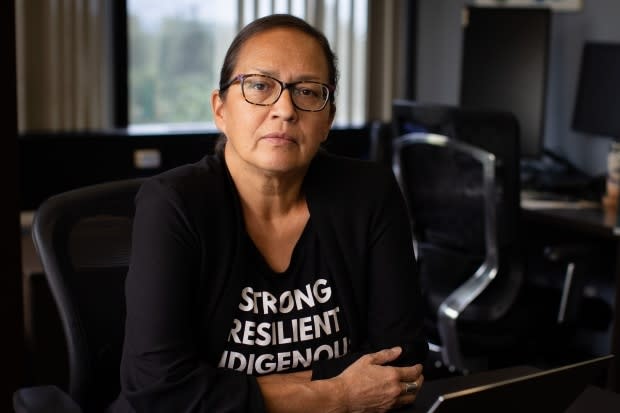93% spike in First Nations overdose deaths recorded in B.C. during COVID-19
New data from B.C.'s First Nations Health Authority shows that overdose deaths among First Nations people have surged dramatically and disproportionately in the province during the COVID-19 pandemic.
"When I talk about these numbers, I'm talking about people," said Dr. Shannon McDonald, acting chief medical officer with the First Nations Health Authority, during a news conference on Monday.
"There has been much pain and loss in our communities due to the loss of these individuals and I want to acknowledge that pain and that loss."
The losses have spiked 93 per cent when comparing data from January to May in 2019 to the same months in 2020.
Eighty-nine First Nations people died from an overdose between January and May of this year.
Community leaders and health officials have known for years that Indigenous people have been disproportionately impacted by the overdose crisis in B.C., which led to the declaration of a public emergency in 2016.
The data presented on Monday shows the difference between the number of deaths among First Nations people compared to the total population further widening since the pandemic hit.
"The problem is getting worse, not better," said McDonald.
"At this point 16 per cent of all overdose deaths in B.C. between January and May of 2020 are First Nations people. This number was 9.9 per cent in 2019," she said.
She added that First Nations people account for 3.3 per cent of the population in B.C.
The data presented by the health authority doesn't capture all First Nations people in B.C., it is limited to those with Indian status, who are residents of B.C. and are registered to receive health services in the province.
May was the deadliest overdose month ever in B.C.
"The dual public health emergencies of the COVID-19 pandemic and B.C.'s overdose crisis have intersected in a way that has had unintended consequences and tragic outcomes for some of those who use substances," said Dr. Nel Wieman, senior medical officer with the First Nations Health Authority.

May was the deadliest month ever in B.C. for illicit overdoses, with 170 deaths reported by the B.C. Coroners Service.
One of the contributing factors in the spike in overdose deaths with the onset of the pandemic has been an increasingly toxic street drug supply due to supply chain disruptions.
"Right now, more than ever, we know that the toxicity of the street supply has gone up exponentially in this pandemic," said Dr. Bonnie Henry, provincial health officer for B.C.
Experts also report that since the pandemic hit there has been limited access to supervised consumption sites and other harm reduction and treatment services.
Staying home to curb the spread of the virus, Dr. Henry said, "has led people to be more isolated, to be alone, to use alone."
Wieman said all of these factors, combined with pre-existing inequities between the general population and First Nations, have led to "the devastating number of overdose deaths we see today" among First Nations communities.
Among the solutions discussed during Monday's news conference were increasing access to safe, pharmaceutical alternatives to street drugs and increasing access to culturally relevant treatment for substance use and mental health.
"We still have a lot of work to do. Too many people are still dying," said Wieman.
"We cannot stand still and watch the progress made in saving lives be lost. We have to adapt and we have to be willing to try new things and try them quickly or we will lose more lives."

